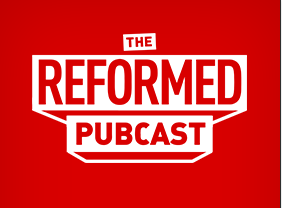QUESTION II. What ground we have to speak of “God’s covenant with Adam,” and to call it “a covenant;” there being no mention of it here in the text, nor elsewhere in scripture do we read of “God’s covenant with Adam.” ANSWER. . . . Continue reading →
Covenant of Works
Ball: The Covenant Of Works Conditioned Upon Perfect Obedience In His Own Person
The Covenant of Works, wherein God covenanted with man to give him eternal life upon condition of perfect obedience in his own person. The Covenant of Grace, which God made with man promising eternal life upon condition of believing…This Covenant [of works] . . . Continue reading →
Polanus On The Covenant Of Works With Adam And Israel
God’s covenant is a bargain which God hath made with men, in which God promises to men some good, and requires of them again, that they perform those things which he commands. And that covenant is either eternal or temporal. The eternal . . . Continue reading →
William Perkins On The Covenant Of Works
God’s covenant, is his contract with man, concerning the obtaining of life eternal, upon a certain condition. This covenant consists of two parts: God’s promise to man, Man’s promise to God. God’s promise to man, is that, whereby he binds himself to . . . Continue reading →
Olevianus On The Covenant Of Works
This obedience of the Son was superior to all the justice of the Law. For Adam also, if he willed, could have remained in the righteousness of the Law. And to the degree that the curse was owed for every sin of . . . Continue reading →
Calvin: Adam Was In A Trial Of Obedience
We must, therefore, look deeper than sensual intemperance. The prohibition to touch the Tree of Knowledge of good and evil was a trial of obedience (obedientiae examen), that Adam, by observing it, might prove his willing submission to the command of God. . . . Continue reading →
Luther On The Covenant Of Works
Before Adam’s fall it was not necessary for him to have Christ, because he was righteous and without sin, just as the angels have no need of Christ. If Adam had not fallen, it would not have been necessary for Christ to . . . Continue reading →
Office Hours: The Trinity And The Covenant Of Redemption (Part 1)
There are passages in Scripture such as Psalm 110, Hebrews 7, and John chapter 17 that reflect something of the eternal relationship between the persons of the Trinity and especially between the Father and the Son. In the Reformation some of our . . . Continue reading →
Theological Error Seeps In
Years ago, in the second house in which Mrs Heidelblog and I lived, water seeped into the basement every time it rained and it rained frequently. As the ground became soaked water would push in and up through the basement. We had . . . Continue reading →
Another Helpful Distinction: Filial Versus Servile Fear
I was fortunate to have been raised in a two-parent family. I had a great Dad. I had what today would be considered an “old school” upbringing. Mom did most (maybe all) of the spanking but Dad made his presence felt. There . . . Continue reading →
The Synod Of Dort On Election, Conditions Of Salvation, And Fruit (2)
Does The Doctrine Of Perseverance Turn The Covenant Of Grace Into A Covenant of Works?
Here the true nature of the Remonstrant doctrine of perseverance emerges: God helps those who help themselves by cooperating with his “assisting grace.” This is quite another picture of salvation. Here God has not parted the Red Sea and led us through, by the hand, as it were (Jer 31:32; Ex 14:16). Rather, according to the Remonstrants, God has covenanted to co-act with those who do what lies within them (facientibus quod in se est, Deus non denegat gratiam). Continue reading →
An Important Distinction Between Kinds And Functions Of Conditions
When we use the word “condition,” the first sense that probably comes to mind, in English usage, is the first definition offered by the Oxford English Dictionary: “convention, stipulation, proviso.” There is another sense to the word, however, as it was used . . . Continue reading →
Through Good Works? (2)
In order to understand properly what Calvin wrote we need to put these passages in context. Chapter 21 is about the relations between justification and sanctification, which he called the “progress” of justification. In other words, for Calvin, the definitive act of God in declaring sinners righteous, on the basis of the imputation of Christ’s righteousness, which is received through faith alone, results in the gradual sanctification of the Christian. Continue reading →
Through Good Works? (1)
Introduction In Reformed theology the noun salvation is typically used in two ways. Sometimes it is used as a synonym for justification. When used this way it does not include sanctification since, according to the Reformed confession, justification is a declarative act . . . Continue reading →
Resources On Conditions In The Covenant Of Grace (Updated)
Some thoughts relative to the current discussion about the nature of conditions in the covenant of grace: First, we cannot get this right unless we distinguish between the covenant of works and the covenant of grace. Part of the problem in this . . . Continue reading →
On The Reformed Pubcast Discussing Covenant Theology
Covenant theology is sometimes regarded and presented by American evangelicals as an idiosyncratic, mysterious, even esoteric way to read Scripture. Of course, from a historical and biblical perspective, it is nothing of the sort. Much of what the Reformed began to teach . . . Continue reading →
A Brief History Of Covenant Theology
The roots of Reformed covenant theology are as deep as the Christian revelation and tradition is old. Its importance to the Reformed faith cannot be overstated. The great Princeton theologian, B. B. Warfield called federal (covenant) theology, “architectonic principle” of the Westminster . . . Continue reading →
WCF: The Condition Of The Covenant Of Works Versus The Condition Of The Covenant Of Grace
1. The distance between God and the creature is so great, that although reasonable creatures do owe obedience unto him as their Creator, yet they could never have any fruition of him as their blessedness and reward, but by some voluntary condescension . . . Continue reading →
Heidegger And Turretin: Adam’s Covenant Of Works Fulfilled By Christ
Canon VII: As all his works were known unto God from eternity, (Acts 15:18), so in time, according to his infinite power, wisdom, and goodness, he made man, the glory and end of his works, in his own image, and, therefore, upright, . . . Continue reading →
Heidelberg Catechism: The Fall Was Law Breaking
7. From where then comes this depraved nature of man? From the fall and disobedience of our first parents, Adam and Eve, in Paradise, whereby our nature became so corrupt that we are all conceived and born in sin. —Heidelberg Catechism







